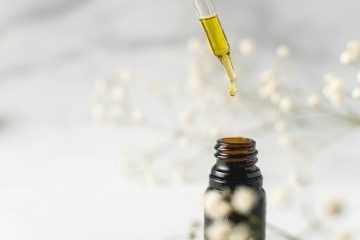If you are worried that you may take too much CBD, you are not alone. Despite the fact that the substance can be extremely beneficial to health, there are some cases when it can lead to an overdose.
Dosage of CBD
Many people who are considering CBD have questions about how safe it is to take. The truth is, it’s very hard to overdose on CBD. However, it can cause side effects if taken in massive amounts.
The best way to avoid an overdose is to consult a doctor. Your primary care physician can help you determine the best dose for you. You should also talk to your doctor about any maintenance medications you are currently taking.
To get an idea of how much CBD you should be taking, you should take into account your body’s weight and metabolism. You’ll probably be able to take about a teaspoon a day. It’s also important to remember that you shouldn’t take more than 20g of CBD per day.
If you’re taking a lot of CBD, you might start to experience some mild side effects. For example, you might feel dizzy or sleepy. You might also experience changes in appetite.
While it’s not a major concern, you should take note of these effects and adjust your dose accordingly. They’re not fatal, but they can make your life a lot more difficult.
If you’re concerned about overdose, you might want to start by limiting your consumption to one puff a day. After that, it’s likely that you’ll be fine.
In some cases, a single puff can cause an overdose, and you should take 15 minutes to wait before you take another puff. A typical bottle of CBD pills contains hundreds to thousands of milligrams of the compound.
You might be surprised to find out that there’s actually a small amount of THC in CBD. There’s also the fact that a large amount of CBD can actually be quite harmful to your liver.
However, most CBD users aren’t experiencing any negative effects. If you do experience any side effects, you’ll have to take a break for about three to five days to reset your tolerance levels.
Doing your homework before you begin any new medication is always a good idea. Don’t forget that marijuana regulations are still in their infancy. So, unless you’re taking prescription medicine, you should avoid trying any substance without first consulting a doctor.
CBD-induced drug interactions
If you are planning on using CBD oil, you might be concerned about its interactions with medications. Although studies on CBD have shown that it has several positive effects, the drug can also cause unpleasant side effects. It is important to consult a physician before taking the drug.
CBD interacts with many types of medications. Some of the most common are those used to treat GERD. In these cases, the drugs can cause adverse effects such as vomiting and nausea.
CBD may also interfere with the CYP450 enzyme system. This is particularly true when CBD is taken at high doses. The CYP450 system is a key factor in the metabolism of medications. By inhibiting the CYP3A enzyme, CBD can affect the metabolism of the CYP3A substrates.
The liver is a critical site in the process of metabolizing many different medications. Therefore, it is not surprising that the liver may be damaged if CBD is administered at high doses.
A study in rats showed that CBD at doses greater than 10 mg/kg showed a nonlinear pharmacokinetic profile. When the drug was co-administered with KCZ, the plasma concentration of CBD increased. Approximately three times higher than the concentrations seen when the drug was administered alone.
Studies in humans showed that CBD had adverse effects, including somnolence, hepatic abnormalities, and diarrhea. However, the dosages were not changed to account for these effects.
CBD has been shown to reduce the production of pro-inflammatory cytokines. These inflammatory cytokines can play an important role in causing inflammation in the stomach and esophagus. For this reason, a patient who is prescribed medications for GERD should seek medical advice before using CBD.
CBD can also increase the blood-thinning effect of anticoagulants. Although it is a relatively safe compound, it is important to discuss these issues with a physician before starting CBD.
CBD is a relatively new drug, so it is not yet well studied on how it will affect the endocannabinoid system. However, early evidence suggests that CBD might be effective in reducing inflammation. Since the endocannabinoid receptors are found in the gastrointestinal system and central nervous system, it is possible that CBD could have a modulatory effect on GI activity.
Taking a break from consuming any CBD
If you’re going to get the most out of CBD you might want to take a break from it. This doesn’t mean a total ban on CBD; it simply means taking a few days off.
There are a few things to keep in mind when you’re taking a break from your usual cannabidiol consumption. First, don’t forget to take your medications. While CBD can be helpful in curing many health issues, it can also interact with other medications, resulting in negative side effects.
Second, don’t forget to give your body some time to rejuvenate. Getting enough rest is important, not just for your mental well-being, but it can also help improve blood circulation.
Third, you might want to try taking a smaller dose of CBD at a time. The best way to do this is to start with a lower-strength product. After a couple of weeks, you can gradually increase the strength of your oil.
Finally, if you’re experiencing any of the above symptoms, call 911 and check out your local poison control center. Your best bet is to follow their advice, which is usually pretty straightforward.
In short, if you are considering trying CBD for the first time, it’s best to consult a health professional. You never know which products have been tainted, or how much of the drug you’re actually taking.
One thing you might want to consider is that there are no official government-approved studies on CBD. However, a few research studies have been conducted. Some have even studied the effects of the stuff on human subjects. For instance, the US Food and Drug Administration (FDA) has approved Epidiolex to treat seizures associated with tuberous sclerosis complex, Dravet syndrome, and Lennox-Gastaut syndrome.
That said, the FDA hasn’t approved any CBD-based drugs. But this doesn’t mean there aren’t any CBD-based products out there. Many products come in the form of oils and gummies. And, of course, CBD is a part of the cannabis plant.
It might be hard to believe, but CBD hasn’t been studied for everything, from alcohol to drugs to addictive behaviors. Still, it’s a good idea to try out a new treatment if it seems like it might be able to help.
Symptoms of a CBD overdose
Symptoms of a CBD overdose are usually not serious. However, if your CBD overdose is severe, you should seek medical attention.
A CBD overdose is defined as taking more than the body needs for the desired effect. The difference between the effective dose and the harmful dose is very small. But it is still advisable to avoid taking large doses of CBD.
If you feel uncomfortable or dizzy after taking a high dose of CBD, it is best to contact your healthcare provider immediately. Other symptoms include vomiting, slurred speech, and trouble breathing. Depending on your individual case, your physician may prescribe you a dosage adjustment.
Although CBD is generally safe, it is not a drug that is approved by the U.S. Food & Drug Administration. Taking large doses of CBD could be toxic to your liver, and the side effects can be severe.
CBD is often used as a treatment for insomnia and chronic pain. You can buy a variety of products that contain the substance. For example, you can get gummies, oils, or wellness products. Regardless of where you buy them, you should be aware of the product’s dosage recommendation.
A single gummy contains 10-30 mg of CBD. It is recommended that you start with a smaller dose, and increase it gradually over the course of several days. When you don’t feel the effects, you should reduce the dose by half. After two weeks, your tolerance should have reset.
High doses of CBD can cause side effects, including nausea, diarrhea, and drowsiness. Most of these symptoms should subside after a few hours.
Overdoses of THC are similar to CBD overdoses. They may affect your heart, decrease blood sugar levels, and cause a slow heart rate. Unless you are experiencing an extreme overdose, it is unlikely that you will be hospitalized.
However, if you are suffering from any of these symptoms, you should go to the emergency room. During your visit, your medical provider will administer oxygen and intravenous fluids, as well as consistent stimulation. Afterward, you will probably be discharged from the hospital.


